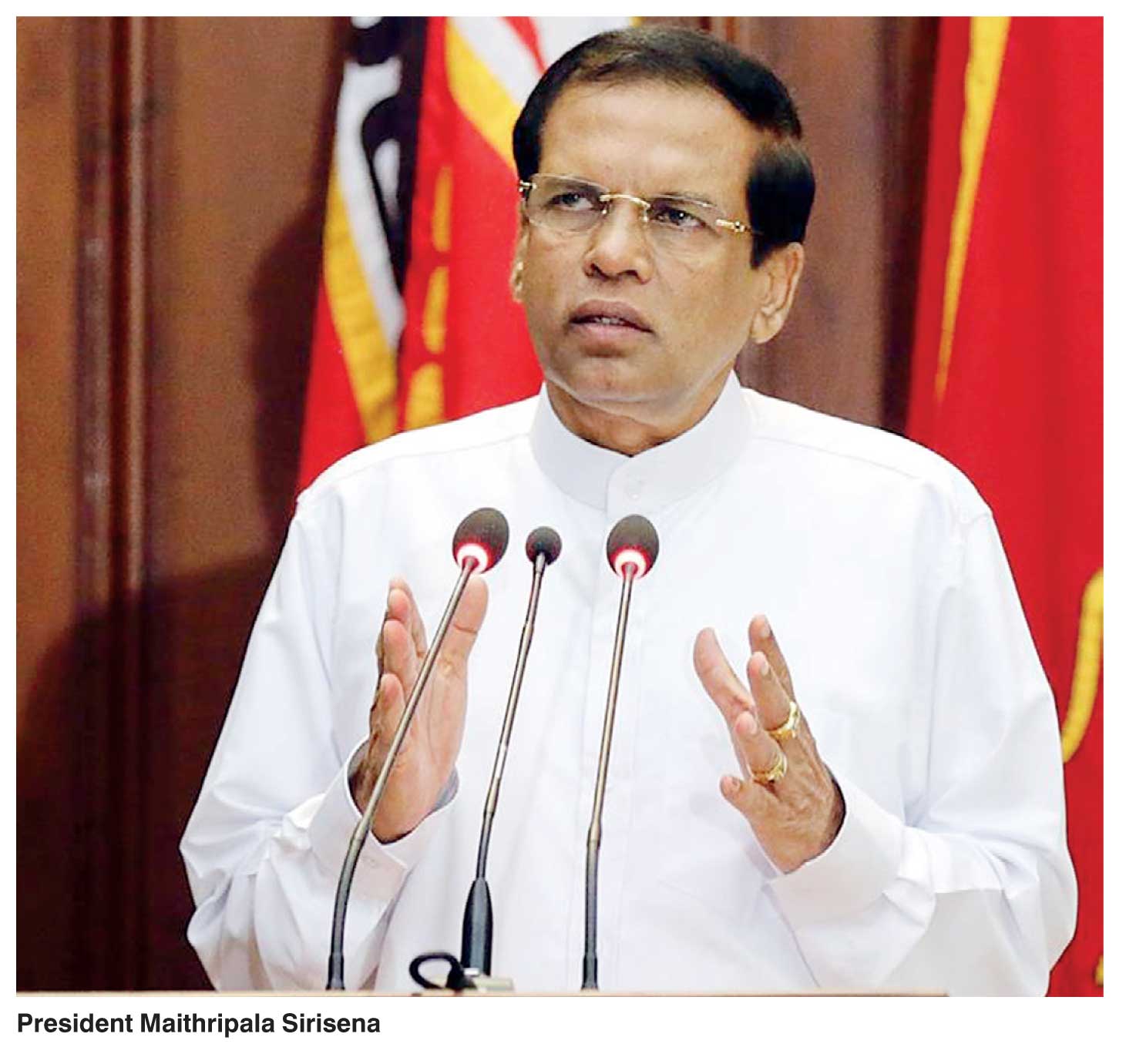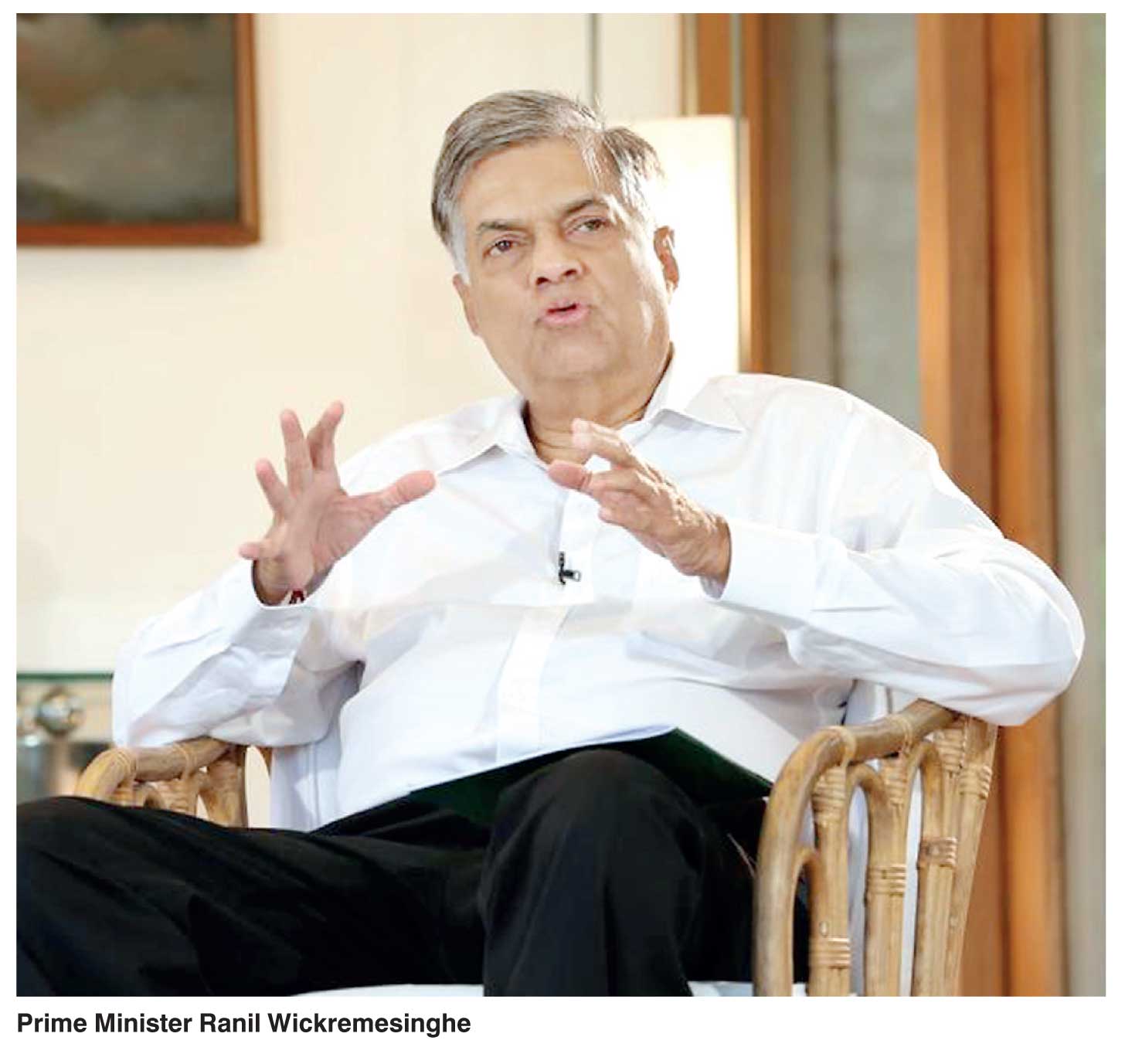Monday Feb 23, 2026
Monday Feb 23, 2026
Monday, 16 January 2017 00:05 - - {{hitsCtrl.values.hits}}
 A positive report by EU on Sri Lanka
A positive report by EU on Sri Lanka
A report published by the European Union or EU on 11 January 2017 (available at: http://trade.ec.europa.eu/doclib/html/155236.htm ) has concluded that Sri Lanka has completed all the requirements needed for it to be granted GSP + status, known in full as EU’s Generalised Scheme of Preferences Plus.
This positive report on Sri Lanka has been filed by EU six years after the suspension of the facility to the country by that powerful economic bloc in 2010. Accordingly, European Commission or EC, the governing body of EU, has proposed that Sri Lanka should be upgraded from its current state of enjoying just GSP to GSP +. However, it will take some more time to restore GSP +, at least another six months, since European Parliament or EP and its Council have up to four months to raise any objection to granting GSP + to Sri Lanka.
As it is, unless there is a major political change in the country during this period reversing its present progressive steps relating to human rights and good governance, restoration of GSP + to Sri Lanka from around the middle of 2017 appears to be a sure thing.
Euphoria of the ruling party members countered by Opposition
The ruling party has been euphoric of the prospects as pronounced by the leading figures in the Government. It has been termed by them as a major diplomatic victory by the new Good Governance Government.
At the same time, the lead figures in the Opposition have downplayed the victory as irrelevant and unnecessary. However, the private sector, specifically those representing the apparel industry, would be buoyant about the new opportunities which they might get if and once GSP+ is restored to the country.
Sri Lanka’s past performance is not satisfactory
Sri Lanka is one among the 30 developing countries which at present enjoys EU’s Standard GSP under which they get partial or entire removal of tariff on about two-thirds of the products which come under the GSP concession.
However, Sri Lanka’s track record in utilising this facility in the past has not been very encouraging. According to the data published by EU, in 2013, out of the total GSP eligible imports of ¤ 1.8 billion, Sri Lanka had utilised only ¤ 1 billion or 59%. In 2014, the country had been able to maintain the same utilisation ratio with comparable figures of ¤ 2 billion and ¤ 1.1 billion, respectively.
However, this has fallen to 54% in the first six months of 2015, indicating a marked decline in the utilisation rate. In comparison, India, which also enjoys GSP facility from EU, had been able to maintain an utilisation rate between 83% and 89% during this period. Hence, Sri Lanka’s exporters have to go a long way to fully harness even the facility which they presently enjoy with EU before they think of harnessing the benefits of GSP +.
What is GSP Plus?
GSP is a special trade concession offered by EU to world’s poor countries with no obligation on the part of the poor countries to offer similar concessions to EU. So, the concessions are one way from EU to the poor countries and not from the poor to EU.
It is being implemented by EU at three levels: the ordinary or standard GSP, GSP Plus and Everything But Arms or EBA facility.
The first one is a trade arrangement which EU provides to 30 developing countries and territories to sell their products in the EU market at reduced tariff rates.
GSP Plus is an enhancement of this facility to vulnerable developing countries, numbering 13 qt present, offering additional tariff reductions to enable them to attain sustainable development and maintain good governance in their affairs. For this purpose, they are required to ratify and implement a number of international conventions which the global community has prescribed for all its members. There are 27 such conventions which EU has stipulated for the eligibility for GSP Plus concessions and they cover a wide range of aspects applicable to human freedom.
EBA is a facility with full duty free, quota free access for all products except arms and ammunition for countries classified as least developed countries or LDCs by the United Nations. There are 49 such LDCs enjoying EBA facility from EU at present.
 The Concerns of Human Freedom: Now a Global Concept
The Concerns of Human Freedom: Now a Global Concept
Human freedom is now recognised by economists and policymakers as the ultimate goal of development. This is because the development means the development of a perfect individual and without freedom, whatever the material well being attained by individuals in a society will become meaningless. The concept of freedom encompasses from political to economic to social to spiritual. Since the state, through the use of force, can arrogate to itself the power to deprive people of freedom, in olden times it was the merciful monarch and today the ruling executive who was expected to guarantee all kinds of freedoms to the people.
Amartya Sen: Justice in society is a must
The Nobel Laureate, Amartya Sen, has been a vociferous advocate of human freedoms for development of mankind. He argued the importance of freedom in two previous books titled ‘Development as Freedom’ and ‘Rationality and Freedom’.
Further developing and codifying his ideas on freedom, he, in his latest book, ‘The Idea of Justice’, has emphasised two requirements that are essential for ensuring justice in a society: the freedom to choose and the freedom to think with reasoning as the guide. According to Sen: “…the freedom to choose our lives can make a significant contribution to our well being, but going beyond the perspective of well being, the freedom itself may be seen as important. Being able to reason and choose is a significant aspect of human life.”
Just society being imposed by donors
Since it is widely alleged that many poor countries lack both these requirements, the donor community has taken upon itself the responsibility for ensuring a just society in aid recipient countries by tying aid to a multitude of behaviour traits. These traits cover such subjects as democracy, law and order, rule of law, good governance, transparency and proper disclosure, human rights, environmental preservation and labour conditions.
In addition, EU has the right to introduce any other requirement to address other deficiencies which the donors would have observed as prevailing in the recipients of aid programs.
Enforced good behaviour through aid packages
It seems that the West has interested itself in seeing a show of enforced good behaviour by poor countries which are desirous of receiving foreign aid. However, this has been subject to much criticism and protest by aid recipients. Yet, there is an element of justification, from the point of donors, in their tying aid with good behaviour traits.
First, there has been mounting evidence of gross abuse of aid flows by the power groups in poor countries, namely, politicians and bureaucrats. The absence of anti-corruption laws, or when such laws prevail, their weak application, has been found to be the main cause of the proliferation of the alleged misuse of aid flows in poor countries.
Second, with faster and more advanced communication systems, information on abuse of power or money by poor country rulers is now readily available to the citizens of donor countries. Since donor countries use taxpayers’ money for granting aid to poor countries, they have to listen to the collective wish of their citizens: that the aid givers should ensure that the tax money they sacrifice is put to proper use by the recipients.
Tariff concessions are also a form of aid
One may wonder how GSP Plus which is a special tariff concession could become an aid flow. The aid flows to poor countries could be classified into two categories.
One is the direct aid in the form of grants, concessionary loans and assistance in physical form like technical support and food supplies. The other is the indirect aid given in the form of preferential tariff concessions extended to developing countries through bilateral trade agreements to have larger market access in developed countries. Both have added to poor country woes, because they are linked to political affiliations, loyalty shown in international fora and in recent times, the commitment to good behaviour by aid recipient countries. The last string encompasses a wide spectrum of national behaviour traits as explained above.
Sri Lanka has always upheld the principles underlying the conventions
The conventions under reference are those ensuring all types of rights of the citizens (civil, political, social, economic, cultural, children’s, women’s, collective bargaining, freedom of organisation and freedom of association), prevention of discrimination against race, gender, employment and occupation, protection of citizens against torture, cruel, inhuman or degrading treatment or punishment, ensuring the prevention and punishment of the crime of genocide, abolition of child labour and many conventions involving the protection of environment and preservation of biodiversity.
These are all prerequisites for creating a just society as pronounced by Sen in ‘The Idea of Justice’ and therefore, it behoves a country to do so voluntarily rather than under compulsion. A plus point for Sri Lanka in this context has been that it has always upheld the principles underlying these international conventions and has raised its voice in international fora many a time for proper adherence to them by all nations without exception. Hence, there should not be any reason for Sri Lanka to have objections to ratifying and implementing them as required under the GSP Plus rules.
Adoption of conventions is no interference in sovereignty
Sri Lanka had agreed to ratify these conventions at the time it sought the concessions under GSP Plus. But by mid 2009, it was found that no action had been taken by the country to fulfil its obligations.
Enforcing human rights by donors
Under EU rules, a beneficiary country is given a three-year period to satisfy the requirement of ratifying and implementing all the 27 conventions involved. Since all these conventions are already designed by the global community and readily available for quick ratification and implementation, a period of three years cannot be claimed to be a too short a period for a country to do so.
In view of Sri Lanka’s long commitment to these principles, the failure of the country to do so as revealed in mid 2009 would have been due to a breakdown of its management systems which should have advised the Government to do the needful at the appropriate time. Hence, it is most unfortunate that a set of international conventions meant for ensuring justice, freedom and the wellbeing of its citizens is portrayed as unnecessary interference in the sovereignty of the country by outside forces.
Satisfaction of right requirements has been made during previous two-year period
According to the EU Report published on 11 January 2017, Sri Lanka has been able to comply with the requirements for GSP + only after the new good governance government was voted to power in January 2015.
There are four requirements that have to be satisfied by a country that seeks GSP + facility. First, the country’s economy should be vulnerable to external shocks due to a heavy concentration of export products in a few product types and that concentration should be more than 75%. In the case of Sri Lanka, according to the report, this concentration is at 92%.
Second, the applicant country should ratify all the 27 conventions specified by EU for that purpose and Sri Lanka has ratified all of them. Third, there should not be any reservation of the ratified conventions and Sri Lanka has met that requirement too.
Fourth, there should not be evidence of serious failure of human, women’s and children’s rights as guaranteed by the prevailing legal, constitutional and administrative systems. In this respect, there are certain weaknesses in Sri Lanka’s case. However, the report has noted that Sri Lanka has already started important legislative processes to correct them effectively. Thus, the report concludes that “the shortcomings do not amount to a serious failure to effectively implement the Convention that would prevent Sri Lanka from joining the GSP+”.
Accordingly, in terms of the undertaking which Sri Lanka has given, the report has concluded that Sri Lanka has satisfied all the requirements for getting GSP + from EU.
Sri Lanka may have to naturally exit GSP + by 2020
However, GSP + is available only to low income and lower middle income countries as defined by the World Bank. A country should be in either of the two categories for the last three year period to become eligible for the facility. In terms of this requirement, when a country gains the upper middle income country status, there is a natural exit from GSP +.
According to the World Bank classification, done in 2016, countries with a per capita income of $ 1,025 or less are categorised as low income, those between $ 1,026 and $ 4,035 as lower middle income, countries between $ 4,036 and $ 12,475 as upper middle income countries. Sri Lanka with a GNI per capita of $ 3,836 in 2015 is pretty much close to this threshold of natural exit from the facility. With the current projected growth rates, it will pass the threshold easily by 2018. Since it should be observed for a three-year period, Sri Lanka will have to exit GSP + by 2020. As such, there is only a very brief period of time available for Sri Lanka to enjoy the benefits of GSP +.
Sri Lanka has spent six long years in its unsuccessful negotiation with EU for GSP + since it was suspended in 2010. That loss cannot be recovered now. But, it can now plan to harness the benefits in full during the remaining four-year period.
In this context, Sri Lanka cannot rely on its apparel industry to provide continued benefits to the country for two reasons. One is that apparel industry has already reached its saturated point and its further development, except in niche products, is unlikely. The other is that Bangladesh, its biggest competitor, is enjoying more favourable concessions under EBA facility.
It has, therefore, to transform its economy into high tech products so that even after it exits GSP + naturally by about 2020, it can continue to harness the benefits by getting integrated to the larger world economy.

(W.A. Wijewardena, a former Deputy Governor of the Central Bank of Sri Lanka, can be reached at [email protected] )